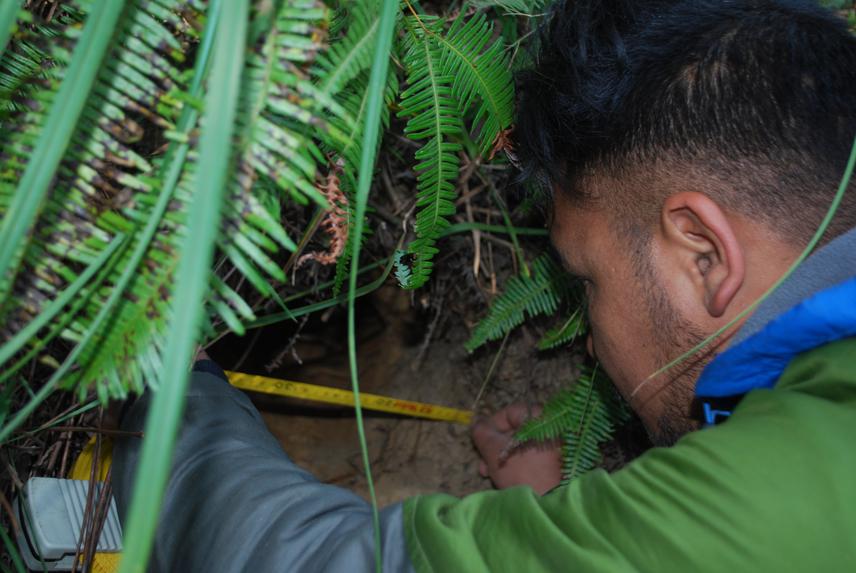Rabita Duwal
The project aiming to promote the ‘local farmers as conservation teachers’, ‘the villages as conservation classrooms’ and the ‘youth as future conservation leaders’ via science and education for the long term conservation of the critically endangered Chinese Pangolin and their habitat in community forests of Bhaktapur, collaborating with community based organizations, community forest user groups and educational institutions.

Measuring diameter of Chinese Pangolin's burrow at Taudolchhap Community Forest, Bhaktapur.
Pangolins are the most illegally poached and trafficked wild mammals in the world. A million pangolins have been removed from the wild over the past decade and over 10,000 are traded every year which is 50 times more than elephants, rhinoceros and tigers combined (ZSL, 2017). Yet they have been among the forgotten victims of the illegal wildlife trade. Pangolins, which have roamed the earth for 80 million years, are dying out from its range. The species has been reassessed to critically endangered from endangered (IUCN, 2014) and transferred to CITES appendix I from appendix II (CITES, 2017) due to heavy decline by high levels of poaching for meat and scales across its range. Pangolins, the pre-historic, world’s most illegally traded, unique and only known truly scaly mammals are still existing in the forests of Bhaktapur which is outside the protected area system and are actually awaiting for their conservation before being locally extinct.
The proposed project site Bhaktapur is the most ancient district of Nepal which is listed as a ‘World Heritage Site’ by UNESCO for its rich culture, traditional art, architecture, historical monuments, craft work, magnificent windows, pottery and weaving industries, excellent temples, beautiful ponds, local customs, religion, festivals, musical mystic, wood, metal and stone artworks. It is the smallest district of Nepal which occupies an area of 119 square kilometers. The altitude ranges from 1,331 meters to 2,191 meters above the sea level. The highest peak of the district is Nagarkot. Around 14.44 % of the total land covers is forest and 58 community forests have been handed over to the user groups (DCCO, 2018).
The proposed community-based, collaborative conservation project will promote local farmers, intellectual people and youth for the protection of last-standing Chinese Pangolin and their habitat via science and education, focusing capacity build up and mass conservation education on National level Festival and Days.